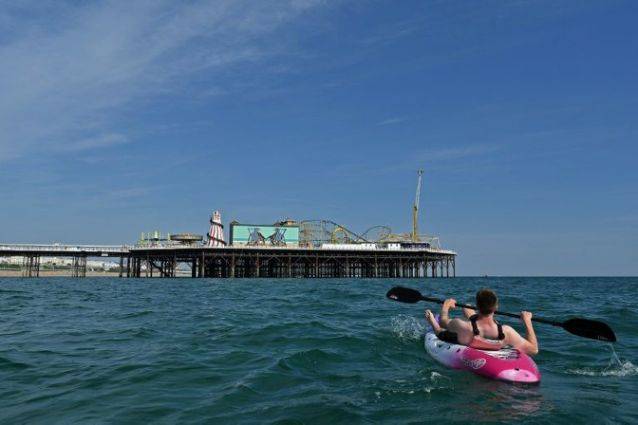Virus outbreak clouds Britons' annual trips to the sun

Stay tuned with 24 News HD Android App

Britons are looking likely to forgo their annual trip to the sun because of the coronavirus pandemic, and instead discover the joys of staying at home, whatever the weather.
Travel firms say fear of infection, quarantine restrictions and cashflow problems caused by the outbreak have pushed up interest in "staycations".
Top spots tipped in the British newspapers include Dorset's sandy beaches, the Lake District national park, the wilds of Scotland and the rugged Cornwall coast.
"It's clear from conversations we're having with customers and booking patterns that many people will opt to stay closer to home within the UK this year," said Derek Jones, chief executive of Kuoni.
Overseas travel appears to be considered "too risky", at least in the short term, he added.
To tap into the increased demand, the high-end Swiss travel firm has for the first time included destinations in Britain and Ireland in its catalogue.
- Camping and caravanning -
Britain has seen more than 40,000 people die in the outbreak but beyond fear of catching the virus, government advice and rules about travel have added confusion.
Sean Tipton, from the Association of British Travel Agents, said some people were "desperate" to go overseas but many were not, which could provide a domestic boost.
"It's a general feeling of uncertainty around travel in relation to coronavirus, which means some people would not be too keen on getting on a plane," he told AFP.
"The other thing is the question, where can you go? The Foreign Office is advising against travel, we have the quarantine requirement."
Most people arriving from overseas, including British nationals, now have to spend 14 days in isolation, under new rules introduced on Monday to stop new COVID-19 infections.
With airports deserted, campsites appeared to be on the verge of a surge in visitors, with bookings filling up as of last month, according to the Cool Camping website.
The Auto Trader ad site also said it had seen a surge in enquiries about buying and renting caravans.
- Lingering doubts -
ABTA pointed out that some 60 percent of Britons already stay in the country for holidays.
But VisitBritain, the UK's tourism promotion agency, urged caution in the belief that even more home-grown tourists could save this year's summer season.
Restaurants, hotels and museums will likely remain shut until the start of July at the earliest and some businesses may never reopen because of the financial hit of closure.
Last month, coach travel group Specialist Leisure went bankrupt, with 2,500 jobs threatened.
VisitBritain director Patricia Yates pointed to research that said losses to the economy could total at least £19.7 billion ($25 billion) from a lack of overseas visitors.
"Much of course depends on how long a quarantine remains in place and whether exemptions are extended," said VisitBritain director Patricia Yates.
But at the same time, a majority of Brits who had booked domestic holidays in July and August were doubtful they would still go ahead, she added.
"Those domestic summer holidays lost are not likely to be replaced with only a minority who have cancelled holidays looking to replace them," she said.
Rebookings were more likely from October onwards, the agency said, with rural and coastal destinations, country parks and other outdoor attractions popular.
- A better 2021? -
ABTA's Tipton agreed that an increase in Britons would be welcome but would not necessarily replace all the freer-spending overseas tourists who would normally come.
In the industry, attention is already turning to next year -- and the news appears more reassuring.
"Bookings for the Maldives are outperforming every other destination we sell around the world, currently accounting for 56 percent of bookings for 2021," said Kuoni's Jones.
He said that after so much hardship this year, people seemed to be more prepared to push the boat out further to have an "extra special" trip next year.
"If you look at bookings for next year they are higher now than they would be normally because people are expecting things be back to some normality then," added ABTA's Tipton.
